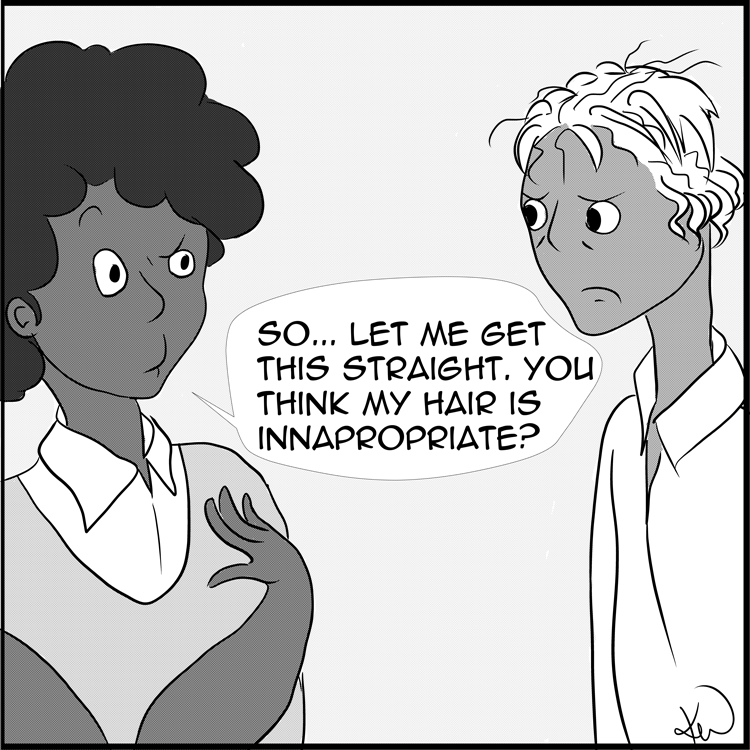
Kelley Wheeler, junior studying marine science
While many students are embarking on summer adventures that required months of planning, I am getting a late start. The last summer before my senior year won’t include study abroad trips across the globe, or swanky internships in New York City. A late start for me means that local internship opportunities may be slim pickings, but opportunities none the less.
As I searched the web for possible options, I couldn’t help but smile at the thought of having the opportunity to work professionally in the fields that interested me. I was excited to “look the part,” and then a thought crossed my mind: Is my hair appropriate for the workplace?
This summer I, like many other African-American women, will proudly be wearing my natural hair. Yet, if I am completely honest, when I find myself interviewing for professional opportunities, I often trade my curls and kinks for straight, dark locks. This mode of thinking is not unique — many African-American women and men share this exact sentiment.
For those who are not familiar with the term “natural,” it is a term used to describe African-American hair in its natural state, free from the use of chemical relaxers. Natural hair includes, but is not limited to, dreadlocks, braids, bantu knots, twists, corn rows, Afros and a host of other things. Many of the styles in that list are not considered work-appropriate. In fact, Hampton University’s Business School was harshly criticized in 2012 for banning students from wearing dreadlocks and cornrows.
In 2007, Jezebel.com covered the story of the Glamour editor who stated that Afros were a “real no-no” in the legal world, and that dreadlocks were “truly dreadful.” She continued by saying that the hairstyles were “political” and “have to go.” The idea that natural hair is “political” is an entirely new concept to me, but I can understand why it would make some people uncomfortable.
Thirsty Roots published an article, “Discovering Our Roots: Do I Hate My Hair?”, celebrating the history of black hair. In the 1800s, once slavery ended, whites favored blacks who styled their hair in ways that were similar to their own hair. According to the article, this is where the concept of “good” hair came about. Fast forward to the 1970s, and the world was introduced to Afro-sporting powerhouses such as Angela Davis. The 70s marked a period in which the Afro was certainly political, marking the Black Power movement. In 1988, Spike Lee’s film “School Daze” shed light on the issues of good vs. bad hair that still existed in the African-American community.
Non persons-of-color on NC State’s campus may or may not have noticed an increase in natural hairstyles among students in recent years but the trend has taken off exponentially. Many NC State students ditched their relaxed hairstyles and got in touch with their roots. Some of these students will go on to corporate jobs that may or may not accept their hair.
Do not be misled — there is nothing wrong with black women choosing to opt out of the natural hair life. I will be the first to admit that I sometimes straighten my hair and wear extensions. There is nothing wrong with black women wearing relaxed or weaved hairstyles. In fact, I believe that the versatility of black hair is one of the things that makes it truly phenomenal. However, the problem arises when black women adopt Eurocentric views about their hair because they are taught to believe that something is wrong with it, or that it’s not good enough.
The belief that natural hair and the many natural hairstyles sported by African-Americans are not professional is representative of a bigger problem in American society. Inadvertently, the society has created this notion that the more congruent and akin African Americans are to white culture, the more legitimate and correct they would be. This notion is simply not correct. In order to unpack these larger issues, we must get to their roots; first, however, one must acknowledge that they exist.